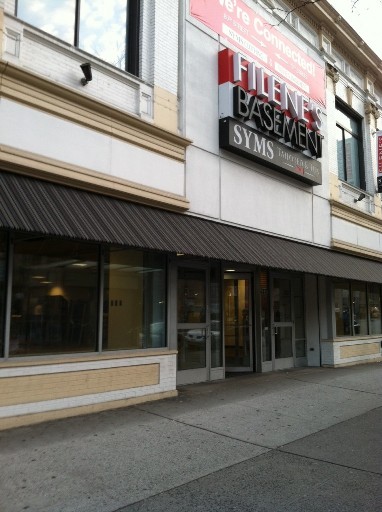Nancy Novick, an Upper West Side writer, plans to write an occasional column for us on books, particularly those with relevance to the neighborhood. This first column is about Alexandra Styron (above), a one-time Upper West Sider who wrote a memoir about her father, the writer William Styron.
By Nancy Novick
The second chapter of Reading My Father, Alexandra Styron’s memoir about life with her famous father, William Styron, begins with a photo of the family at home. In it, Styron appears to look on fondly while his three oldest children do their homework. Baby Alexandra seems intent on joining in. The children’s mother leans in next to her husband, smiling at her brood. Like so many posed photos, though, it reveals little of the family story. Ms. Styron’s text paints a much different picture of the household headed by the heralded author. Plagued by alcoholism,
hypochondria, and crippling depression–famously chronicled in Darkness Visible–William Styron was an erratic, frightening, and sometimes cruel father.
Throughout her book, Ms. Styron skillfully interweaves the history of her father’s early life, education, and rise to fame with episodes that came much later, including those that document the author’s long psychiatric and physical decline. In her clear-eyed and sympathetic voice, Ms. Styron describes growing up in a household that revolved around her father’s work, his unpredictable temper, her retreat into a habit of near-constant television viewing, and her constant feeling of anxiety, “I was worried about crossing him all the time.” Mr. Styron’s interactions with his children were intermittent. When he was available to them, he liked to tell gruesome stories of a homicidal maniac who left his victims remains in the attic of the Styron home and once told Alexandra that her beloved pony would have to be sold to the glue factory.
All was not unrelieved gloom, however. Ms. Styron was able to spend time horseback riding. There were summers on Martha’s Vineyard that offered “secret pleasures and freedoms unimaginable in the winter months.” And Mrs. Styron made sure the children had a warm and lively Christmas filled with gifts (despite her husband’s hatred for the holiday and the materialistic display that accompanies it—all evidence of the gift giving had to be hidden by the time he woke up at mid-day.)
The Styron home was the scene of many lively gatherings. Friends including Mike Nichols, George Plimpton, Leonard Bernstein and family, and James Baldwin attended parties where food and drink flowed freely: “Everyone had a nickname…Everyone drank. And everyone believed in the fundamental importance of their shared aspiration: literary sainthood.”
Ms. Styron also writes about her response to her father’s work at different ages; about her pride in being the author’s daughter; and her evolution as a writer in her own right. In a particularly poignant passage she describes what must have been a hard-won understanding of who William Styron was as a father and a writer:
“But if each creation is, in effect, an artist’s offspring, I think Daddy put his nonfiction in the category with his four living, breathing children. There was affection for what he’d made and frequently, pride. But the Novel owned his heart and was the one thing about which he really gave a damn.”
Despite the dark subject matter, there is much in this memoir to enjoy and appreciate. Ms. Styron, a one-time Upper West Sider, will discuss Reading My Father on Thursday, March 8 at 7 pm at the 82nd Street Barnes and Noble.









